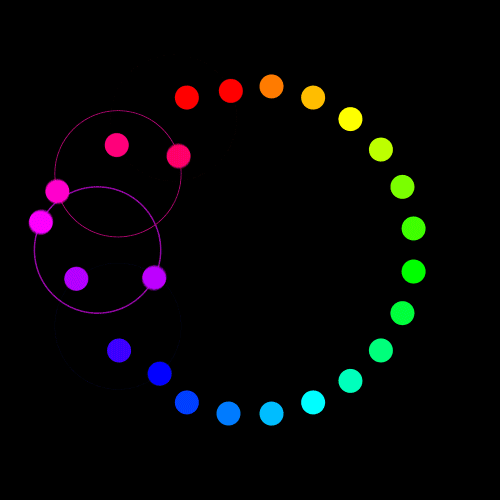
微信扫一扫,移动浏览光盘
简介
综观21世纪的外国语言文学研究,就语言学研究而言,形式语言学理论和功能语言学理论继续对抗和对话,认知语言学理论和社会文化理论发展迅速,各种语言学的理论思潮试图从不同角度解释语言事实;在应用方面,语言学更加广泛地与多学科交叉,运用和借鉴包括数理逻辑、计算机科学、心理学、神经科学、认知科学、生态科学、经济学等各学科在内的研究成果和方法,不断凸显语言学作为人文科学和自然科学交叉学科地位。就文学研究而言,英美文学研究受经济全球化浪潮的冲击,文学及文学研究都关注文化全球化与本土性的关系。
本书为英文版。
目录
declaration
acknowledgements
导读
list of abbreviations
table of contents
list of tables
list of figures
introduction
0.1 motivation
0.2 rationale and research orientation of the present study
0.3 overture to the present study
0.4 outline of the dissertation
part i literature review
chapter 1 task-based l2 lexical learning
1.1 introduction
1.2 definition of key terms
1.3 effects of task type on l2 lexical learning
1.4 effects of task frequency on 1_2 lexical learning
1.5 effects of textual, lexical and learner factors on l2 lexical learning
1.6 summary
.chapter 2 controversies over incidental and intentional l2 lexical learning
2.1 introduction
2.2 traditional dichotomy between incidental and intentional l2 lexical learning
2.3 arguments for incidental lexical learning and empirical findings
2.4 arguments for intentional l2 lexical learning and empirical findings
2.5 unsettled issues
2.6 solutions in the present study
2.7 summary
chapter 3 controversies over involvement load hypothesis
3.1 introduction
3.2 involvement load hypothesis
3.3 empirical findings
3.4 controversial issues
3.5 solutions in the present study
3.6 general framework of the present study
3.7 summary
part ii methodology
chapter 4 research design
4. 1 introduction
4. 2 the pilot study
4.3 the main study
4.4 summary
part iii results and discussions
chapter 5 effects of task type
5.1 introduction
5.2 overall effects of task type
5.3 modified effects of task type
5.4 role of task-induced involvement load
5.5 summary
chapter 6 effects of task frequency
6.1 introduction
6.2 overall effects of task frequency
6.3 modified effects of task frequency
6.4 optimal task frequency
6.5 summary
chapter 7 effects of lexical presentation
7.1 introduction
7.2 effects of lexical formation
7.3 effects of contextual elaborations
7.4 most and least learned target lus
7.5 summary
part iv conclusion
chapter 8 findings, implications and limitations
8.1 major findings
8.2 contributions
8.3 limitations
8.4 suggestions for future research
8.5 summary
appendix i treatment text for the pilot study
appendix ii a spelling test of target lexical units
appendix iii guided writing
appendix iv vocabulary acquisition test of the pilot study
appendix v a sentence translation exercise
appendix vi the 7 -scale scoring of vks for the pilot study
appendix vii revised vocabulary acquisition test for the main study
appendix viii interview guide
references
acknowledgements
导读
list of abbreviations
table of contents
list of tables
list of figures
introduction
0.1 motivation
0.2 rationale and research orientation of the present study
0.3 overture to the present study
0.4 outline of the dissertation
part i literature review
chapter 1 task-based l2 lexical learning
1.1 introduction
1.2 definition of key terms
1.3 effects of task type on l2 lexical learning
1.4 effects of task frequency on 1_2 lexical learning
1.5 effects of textual, lexical and learner factors on l2 lexical learning
1.6 summary
.chapter 2 controversies over incidental and intentional l2 lexical learning
2.1 introduction
2.2 traditional dichotomy between incidental and intentional l2 lexical learning
2.3 arguments for incidental lexical learning and empirical findings
2.4 arguments for intentional l2 lexical learning and empirical findings
2.5 unsettled issues
2.6 solutions in the present study
2.7 summary
chapter 3 controversies over involvement load hypothesis
3.1 introduction
3.2 involvement load hypothesis
3.3 empirical findings
3.4 controversial issues
3.5 solutions in the present study
3.6 general framework of the present study
3.7 summary
part ii methodology
chapter 4 research design
4. 1 introduction
4. 2 the pilot study
4.3 the main study
4.4 summary
part iii results and discussions
chapter 5 effects of task type
5.1 introduction
5.2 overall effects of task type
5.3 modified effects of task type
5.4 role of task-induced involvement load
5.5 summary
chapter 6 effects of task frequency
6.1 introduction
6.2 overall effects of task frequency
6.3 modified effects of task frequency
6.4 optimal task frequency
6.5 summary
chapter 7 effects of lexical presentation
7.1 introduction
7.2 effects of lexical formation
7.3 effects of contextual elaborations
7.4 most and least learned target lus
7.5 summary
part iv conclusion
chapter 8 findings, implications and limitations
8.1 major findings
8.2 contributions
8.3 limitations
8.4 suggestions for future research
8.5 summary
appendix i treatment text for the pilot study
appendix ii a spelling test of target lexical units
appendix iii guided writing
appendix iv vocabulary acquisition test of the pilot study
appendix v a sentence translation exercise
appendix vi the 7 -scale scoring of vks for the pilot study
appendix vii revised vocabulary acquisition test for the main study
appendix viii interview guide
references
Task-based L2 lexical learning: an experimental study
- 名称
- 类型
- 大小
光盘服务联系方式: 020-38250260 客服QQ:4006604884
云图客服:
用户发送的提问,这种方式就需要有位在线客服来回答用户的问题,这种 就属于对话式的,问题是这种提问是否需要用户登录才能提问
Video Player
×
Audio Player
×
pdf Player
×


